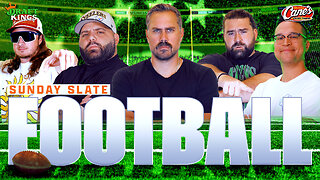The Chalice of Lies - Lessons Learned from a Sunday Mass Spill.
Join me on Twitter (X)...
https://x.com/KingArthurII2
One of the most memorable experiences from my childhood happened when I was about 10 years old, serving as an altar boy during Sunday Mass. It was a routine service, nothing out of the ordinary, until I found myself caught in a moment that left a lasting impression on me.
My role that day was simple: pass the glass of wine to the priest, so he could pour it into the chalice for Communion. However, things didn't go as planned. As I handed over the wine, it slipped from my hands, spilling onto the table. We watched in horror as the red claret soaked the brilliant white cloth, spreading as blood would spread from an open head wound. Our backs were to the congregation, so no one else saw what happened—except the priest. There we stood, with no more wine to offer. I expected him to pause, leave the scene and get some more from the store cupboard, but instead, the priest carried on as if nothing had happened. He lifted the empty chalice to his lips, going through the motions as though he were drinking wine. From where I stood, I knew the truth: the chalice was empty.
When the service ended, I told my friends what had happened, eager to share the unusual event. But to my surprise, none of them believed me. They couldn’t fathom that the priest, a figure of authority, would lie so blatantly in front of the whole congregation. They dismissed my story, preferring the comfort of what they thought had happened, rather than the reality of what I had witnessed.
Reflecting on that moment now, I realize how much it taught me. First, people in authority can and do lie—even in situations where you least expect it. The priest’s actions that day were small, but the implications were significant. Instead of addressing the mistake, he chose to pretend everything was fine, reinforcing the idea that appearances sometimes matter more than truth, especially when people aren’t watching closely.
The second lesson was more personal: no one believes you when you tell the truth, especially when that truth challenges their perception of reality. Even as a kid, I experienced how difficult it can be to get people to accept something that doesn’t align with what they think they know. My friends, like the congregation, were convinced by the ritual they had witnessed. My story didn’t fit into their understanding, so they brushed it aside.
That Sunday taught me how fragile our trust in authority can be and how isolating it feels when the truth is dismissed. It also made me realize the importance of holding on to your own experiences, even when others don't believe you. The truth, after all, doesn’t become less true just because it’s uncomfortable or ignored. In life, we encounter moments like these—moments where we see something for what it is, even when others don't, and the challenge lies in holding on to that truth.
As an adult, this experience still resonates with me. It's a reminder that truth and belief are not always aligned, and authority figures—whether they’re priests, politicians, or public figures—are just as fallible as anyone else.
-
 LIVE
LIVE
Vigilant News Network
5 hours agoEpstein Victim Drops Election Surprise - Media Blackout
3,211 watching -
 6:25:15
6:25:15
Barstool Gambling
8 hours agoBig Cat and Co to Sweat Out the Week 6 Sunday Slate | Barstool Gambling Cave
33K2 -
 3:44:17
3:44:17
SilverFox
9 hours ago🔴LIVE - FPBC #6 - LOTR Fellowship of the Ring - Part 1
28.6K7 -
![Shocktober 2024: Blair Witch - Part 1 [PC] | Rumble Gaming](https://1a-1791.com/video/s8/1/e/V/k/4/eVk4t.0kob-small-Shocktober-2024-Beyond-Hanw.jpg) LIVE
LIVE
NeoX5
6 hours agoShocktober 2024: Blair Witch - Part 1 [PC] | Rumble Gaming
489 watching -
 LIVE
LIVE
Chi-Town Gamers Livestreams
7 hours agoGears of War: Judgment Ep. 3 | Dragonball Sparking ZERO #RumbleTakeover
207 watching -
 6:14:41
6:14:41
SwitzerlandPlayIT
11 hours ago12.30pm EST - Castlevania - Lords of Shadow - Gabriel Belmont Knows How To Use His Whip...
49.1K4 -
 7:26:43
7:26:43
Scottish Viking Gaming
10 hours agoSunday Funday | Satisfactory Server is up and Running!
70.8K2 -
 23:10
23:10
Mr. Build It
4 days agoWe don't have the right materials to finish (Ep.3)
79.2K14 -
 4:54:04
4:54:04
tacetmort3m
1 day ago🔴 LIVE - HOW ABOUT A TASTE OF FREEDOM TODAY - HELLDIVERS 2
58.3K3 -
 7:42
7:42
scoutthedoggie
1 day agoM14 EBR Airsoft War Scotland HD
64.3K22